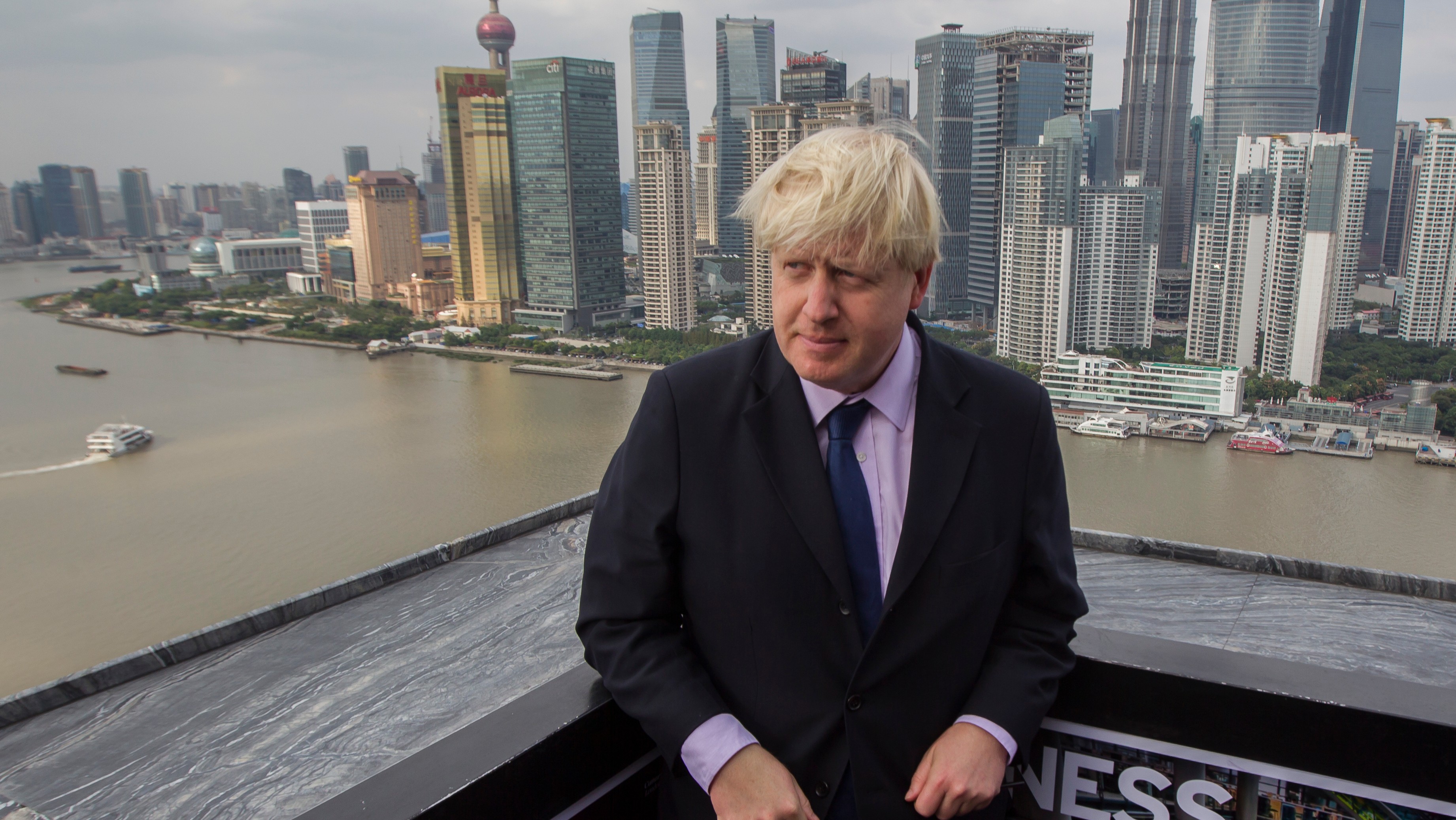Why UK-China relations require ‘wholly different way of thinking’
UK imposes sanctions on Beijing over Uighur Muslim abuses

A free daily email with the biggest news stories of the day – and the best features from TheWeek.com
You are now subscribed
Your newsletter sign-up was successful
The UK is punishing China for human rights abuses for the first time in three decades - but ministers are treading very carefully.
The UK yesterday joined the EU, US and Canada in imposing sanctions on Beijing over its persecution and mass interments of Uighur Muslims in the Xinjiang region.
Four officials and a security organisation in China were hit with travel bans and asset freezes, prompting Beijing to respond with travel bans on ten EU individuals and four entities.
The Week
Escape your echo chamber. Get the facts behind the news, plus analysis from multiple perspectives.

Sign up for The Week's Free Newsletters
From our morning news briefing to a weekly Good News Newsletter, get the best of The Week delivered directly to your inbox.
From our morning news briefing to a weekly Good News Newsletter, get the best of The Week delivered directly to your inbox.
‘Utterly inconsistent’
Labour’s shadow foreign secretary Lisa Nandy has welcomed the UK’s decision to sanction China, but pointed out that the move came as ministers were trying to push through a trade bill allowing the government to sign deals with countries that commit genocide.
Labour and a number of Tory rebels backed an attempt by the Lords to add an amendment to establish a panel of judicial experts to decide whether any future trade partners had committed genocide. But the amendment was voted down in the Commons just hours after Foreign Secretary Dominic Raab agreed to the ostensibly unrelated sanctions.
The Guardian notes that “neither the UK or EU has imposed sanctions against Chinese officials involved in the suppression of democratic elections in Hong Kong”.
A free daily email with the biggest news stories of the day – and the best features from TheWeek.com
Nandy told MPs that the “long overdue” punishment that has been agreed was “a grubby, cynical, last-ditch attempt” to avert a backbench rebellion and “sums up just how utterly inconsistent the government’s approach to China is”.
Raab bit back by ridiculing the suggestion that “the concerted and unprecedented action of 30 countries is somehow tied up with the UK’s domestic legislative timetable” on the trade bill.
‘Difficult balance’
The “difficult balance” faced by ministers was underlined by ex-prime minister Theresa May and her former chancellor Philip Hammond during a National Security Strategy Committee hearing that was also held yesterday, writes HuffPost’s executive editor Paul Waugh.
May insisted that the UK could not “shut China out”, while Hammond said the relationship with China would “require a wholly different way of thinking”.
“We have been rather used to dealing with strategic challengers that are economically inferior to us,” he explained, but dealing with Beijing demanded a new approach to tackle “the broad challenge across the economic, strategic and political fronts”.
Waugh notes that with the UK hosting the COP26 global climate talks this year, “Boris Johnson also needs the Chinese to help him get an historic breakthrough on the environment”.
But as Canada’s Financial Post points out, yesterday’s small margin of victory in the trade bill vote shows just “how thorny an issue UK-China relations are to British lawmakers”.
-
 The ‘ravenous’ demand for Cornish minerals
The ‘ravenous’ demand for Cornish mineralsUnder the Radar Growing need for critical minerals to power tech has intensified ‘appetite’ for lithium, which could be a ‘huge boon’ for local economy
-
 Why are election experts taking Trump’s midterm threats seriously?
Why are election experts taking Trump’s midterm threats seriously?IN THE SPOTLIGHT As the president muses about polling place deployments and a centralized electoral system aimed at one-party control, lawmakers are taking this administration at its word
-
 ‘Restaurateurs have become millionaires’
‘Restaurateurs have become millionaires’Instant Opinion Opinion, comment and editorials of the day
-
 Epstein files topple law CEO, roil UK government
Epstein files topple law CEO, roil UK governmentSpeed Read Peter Mandelson, Britain’s former ambassador to the US, is caught up in the scandal
-
 Iran and US prepare to meet after skirmishes
Iran and US prepare to meet after skirmishesSpeed Read The incident comes amid heightened tensions in the Middle East
-
 Israel retrieves final hostage’s body from Gaza
Israel retrieves final hostage’s body from GazaSpeed Read The 24-year-old police officer was killed during the initial Hamas attack
-
 China’s Xi targets top general in growing purge
China’s Xi targets top general in growing purgeSpeed Read Zhang Youxia is being investigated over ‘grave violations’ of the law
-
 Panama and Canada are negotiating over a crucial copper mine
Panama and Canada are negotiating over a crucial copper mineIn the Spotlight Panama is set to make a final decision on the mine this summer
-
 Why Greenland’s natural resources are nearly impossible to mine
Why Greenland’s natural resources are nearly impossible to mineThe Explainer The country’s natural landscape makes the task extremely difficult
-
 Iran cuts internet as protests escalate
Iran cuts internet as protests escalateSpeed Reada Government buildings across the country have been set on fire
-
 US nabs ‘shadow’ tanker claimed by Russia
US nabs ‘shadow’ tanker claimed by RussiaSpeed Read The ship was one of two vessels seized by the US military